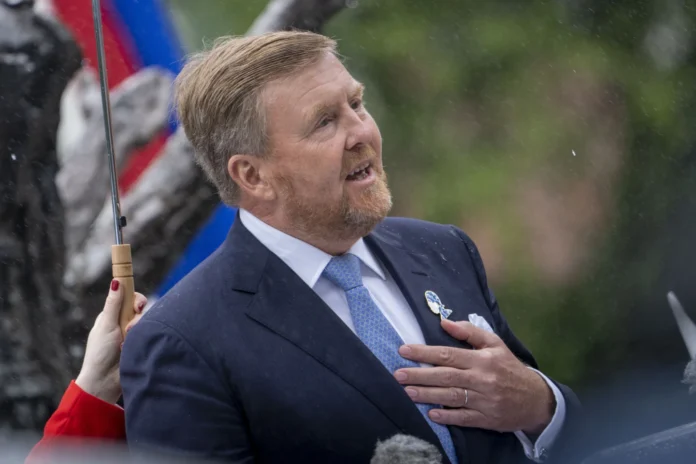AMSTERDAM (Reuters)-In a significant move, Dutch King Willem-Alexander delivered an emotional speech apologizing for the Netherlands’ role in the slave trade and slavery. His speech came after Dutch Prime Minister Mark Rutte’s apology in late 2022, and it reflects a broader global reckoning with colonial histories prompted by the Black Lives Matter movement. The king expressed remorse for the failure to act against this “crime against humanity” and announced the commissioning of a study into the involvement of the royal House of Orange-Nassau in slavery.
The commemoration event marked the 150th anniversary of the abolition of slavery in Suriname and the Dutch colonies in the Caribbean, which occurred on July 1, 1863. However, most enslaved laborers were forced to continue working on plantations for an additional 10 years. The king’s ancestors were revealed to have profited immensely from slavery, earning the modern-day equivalent of 545 million euros ($595 million) from slave trade-related activities.
While the Dutch government has established a 200 million-euro ($217 million) fund for initiatives addressing the legacy of slavery and improving education, some groups, such as Black Manifesto and The Black Archives, have called for reparations in addition to an apology. They organized a protest march, emphasizing that an apology should be accompanied by reparatory justice. The protesters wore colorful traditional clothing in a celebration of Surinamese culture, which had been restricted during the time of slavery.
The Netherlands’ colonial history has faced renewed scrutiny and criticism in the wake of the killing of George Floyd and the global Black Lives Matter movement. The country’s involvement in the trans-Atlantic slave trade dates back to the late 1500s, with the Dutch West India Company eventually becoming the largest trans-Atlantic slave trader. The Dutch government’s acknowledgment of historic abuses mirrors similar actions taken by other nations and institutions, such as Denmark, Belgium, the Catholic Church, and discussions in the United Kingdom.
While there are differing opinions in the Netherlands regarding the need for apologies, King Willem-Alexander called for unity in navigating the process of healing, reconciliation, and recovery. The speech and the king’s gesture of laying a wreath at the national slavery monument in Amsterdam represent a significant step towards acknowledging and addressing the country’s colonial past.






